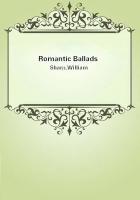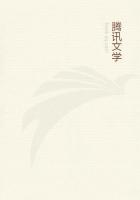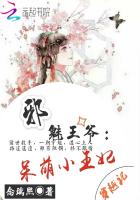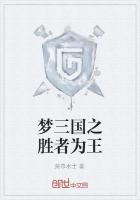The Fuggers of Augsburg, in whom all modern Luculluses will recognize their princes, and all bankers their masters, were gifted with powers of calculation it would be difficult to surpass. Well, those practical men, who loaned the funds of all Europe to the sovereigns of the sixteenth century (as deeply in debt as the kings of the present day), those illustrious guests of Charles V. were sleeping partners in the crucibles of Paracelsus. At the beginning of the sixteenth century, Ruggiero the elder was the head of that secret university from which issued the Cardans, the Nostradamuses, and the Agrippas (all in their turn physicians of the house of Valois); also the astronomers, astrologers, and alchemists who surrounded the princes of Christendom and were more especially welcomed and protected in France by Catherine de' Medici. In the nativity drawn by Basilio and Ruggiero the elder, the principal events of Catherine's life were foretold with a correctness which is quite disheartening for those who deny the power of occult science. This horoscope predicted the misfortunes which during the siege of Florence imperilled the beginning of her life;also her marriage with a son of the king of France, the unexpected succession of that son to his father's throne, the birth of her children, their number, and the fact that three of her sons would be kings in succession, that two of her daughters would be queens, and that all of them were destined to die without posterity. This prediction was so fully realized that many historians have assumed that it was written after the events.
It is well known that Nostradamus took to the chateau de Chaumont, whither Catherine went after the conspiracy of La Renaudie, a woman who possessed the faculty of reading the future. Now, during the reign of Francois II., while the queen had with her her four sons, all young and in good health, and before the marriage of her daughter Elizabeth with Philip II., king of Spain, or that of her daughter Marguerite with Henri de Bourbon, king of Navarre (afterward Henri IV.), Nostradamus and this woman reiterated the circumstances formerly predicted in the famous nativity. This woman, who was no doubt gifted with second sight, and who belonged to the great school of Seekers of the Great Work, though the particulars of her life and name are lost to history, stated that the last crowned child would be assassinated.
Having placed the queen-mother in front of a magic mirror, in which was reflected a wheel on the several spokes of which were the faces of her children, the sorceress set the wheel revolving, and Catherine counted the number of revolutions which it made. Each revolution was for each son one year of his reign. Henri IV. was also put upon the wheel, which then made twenty-four rounds, and the woman (some historians have said it was a man) told the frightened queen that Henri de Bourbon would be king of France and reign that number of years. From that time forth Catherine de' Medici vowed a mortal hatred to the man whom she knew would succeed the last of her Valois sons, who was to die assassinated. Anxious to know what her own death would be, she was warned to beware of Saint-Germain. Supposing, therefore, that she would be either put to death or imprisoned in the chateau de Saint-Germain, she would never so much as put her foot there, although that residence was far more convenient for her political plans, owing to its proximity to Paris, than the other castles to which she retreated with the king during the troubles. When she was taken suddenly ill, a few days after the murder of the Duc de Guise at Blois, she asked the name of the bishop who came to assist her. Being told it was Saint-Germain, she cried out, "I am dead!" and did actually die on the morrow,--having, moreover, lived the exact number of years given to her by all her horoscopes.
These predictions, which were known to the Cardinal de Lorraine, who regarded them as witchcraft, were now in process of realization.
Francois II. had reigned his two revolutions of the wheel, and Charles IX. was now ****** his last turn. If Catherine said the strange words which history has attributed to her when her son Henri started for Poland,--"You will soon return,"--they must be set down to her faith in occult science and not to the intention of poisoning Charles IX.
Many other circumstances corroborated Catherine's faith in the occult sciences. The night before the tournament at which Henri II. was killed, Catherine saw the fatal blow in a dream. Her astrological council, then composed of Nostradamus and the two Ruggieri, had already predicted to her the death of the king. History has recorded the efforts made by Catherine to persuade her husband not to enter the lists. The prognostic, and the dream produced by the prognostic, were verified. The memoirs of the day relate another fact that was no less singular. The courier who announced the victory of Moncontour arrived in the night, after riding with such speed that he killed three horses. The queen-mother was awakened to receive the news, to which she replied, "I knew it already." In fact, as Brantome relates, she had told of her son's triumph the evening before, and narrated several circumstances of the battle. The astrologer of the house of Bourbon predicted that the youngest of all the princes descended from Saint-Louis (the son of Antoine de Bourbon) would ascend the throne of France. This prediction, related by Sully, was accomplished in the precise terms of the horoscope; which led Henri IV. to say that by dint of lying these people sometimes hit the truth. However that may be, if most of the great minds of that epoch believed in this vast science,--called Magic by the masters of judicial astrology, and Sorcery by the public,--they were justified in doing so by the fulfilment of horoscopes.
It was for the use of Cosmo Ruggiero, her mathematician, astronomer, and astrologer, that Catherine de' Medici erected the tower behind the Halle aux Bles,--all that now remains of the hotel de Soissons. Cosmo Ruggiero possessed, like confessors, a mysterious influence, the possession of which, like them again, sufficed him. He cherished an ambitious thought superior to all vulgar ambitions. This man, whom dramatists and romance-writers depict as a juggler, owned the rich abbey of Saint-Mahe in Lower Brittany, and refused many high ecclesiastical dignities; the gold which the superstitious passions of the age poured into his coffers sufficed for his secret enterprise;and the queen's hand, stretched above his head, preserved every hair of it from danger.

